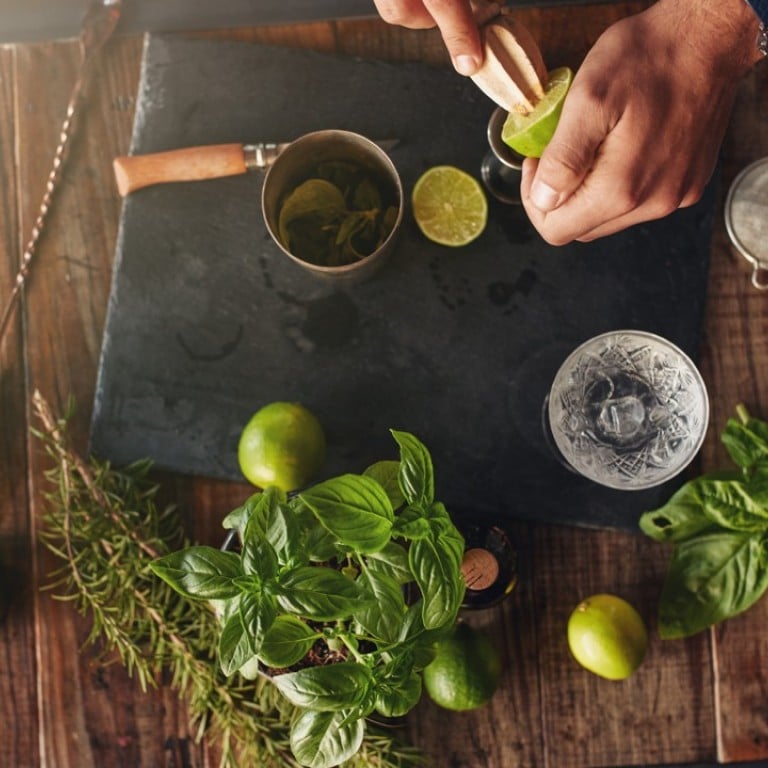Macau’s best cocktails blend Macanese, Portuguese and Chinese herbs and spices

Nature’s remedies are finding their way into exotic new drinks, enhancing flavour, adding colour and giving mixologists something new to think about
For mixologists, herbs have become an essential ingredient. While an alcoholic cocktail could probably never be considered a “healthy option”, one made with a few herbs might provide some health benefits. Besides which, they can taste delicious.
“Herbs play a very big role in cocktails because not only [do they] influence the taste and scent, but also the look of a cocktail,” says Nikita Matveev, resident mixologist at Mandarin Oriental, Macau. “We either use a herb-based spirit and/or fresh or dry herbs.”
Matveev, who believes that “less is more” when it comes to adding herbs to cocktails, says herbs can be used as a garnish for an extra touch of colour and, more importantly, as an additive to create an extra depth of flavour.

Among the variety of herbs available, mint, basil, thyme, rosemary, cinnamon and lemongrass are a few of the bartenders’ favourites that are commonly used to make classic cocktails such as the Mojito, Old Fashioned and Last Word.
However, with the advances in mixology techniques and the diverse palates of customers to please, bars and their tenders are exploring every possible herb to create signature drinks of their own.
Among them is Bar Azul at Four Seasons Hotel Macao, which has launched an interesting new menu. Depicting journeys to the old Portuguese colony – which was an important trade node – the menu draws its inspiration from Macau’s historical background and influence.

China Rouge at the Galaxy Macau, for example,offers an exquisite list of award-winning and signature cocktails. The old Shanghai-style entertainment lounge uses traditional local herbs from mainland China and around the region in its creations, such as dried longan, cinnamon, goji berry, cloves and ginseng in its Winter cocktail, and dried tangerine peel in its Eastern Fashioned.
While herbs from around the world can help give a cocktail a more exotic, “foreign” flavour, “local herbs in cocktails provide a very special local taste for cocktail lovers”, says Billy Xie, acting bar supervisor at China Rouge. “My favourite ... herb is our local coriander. It has a special smell and taste to it.”